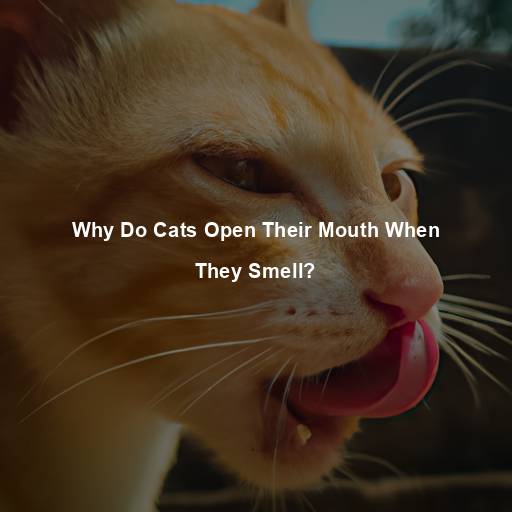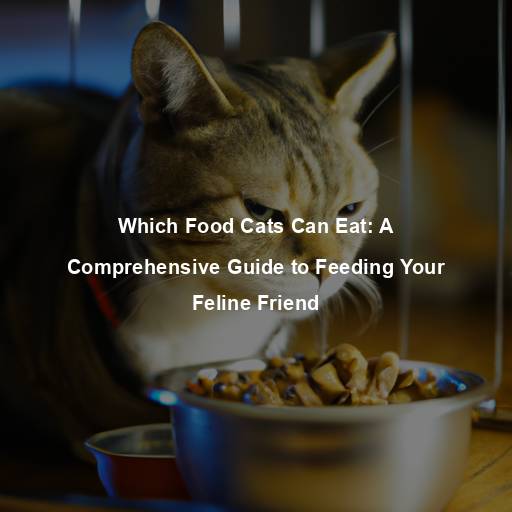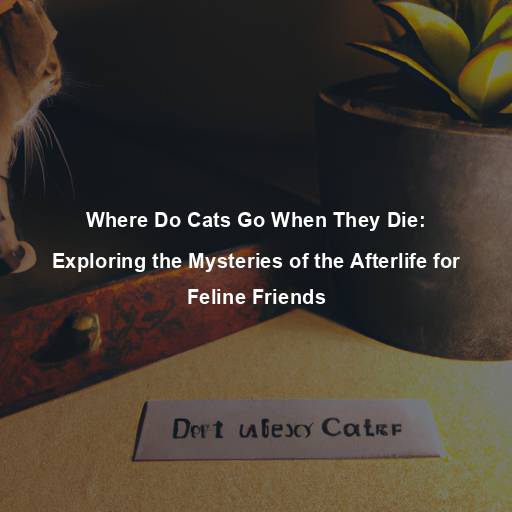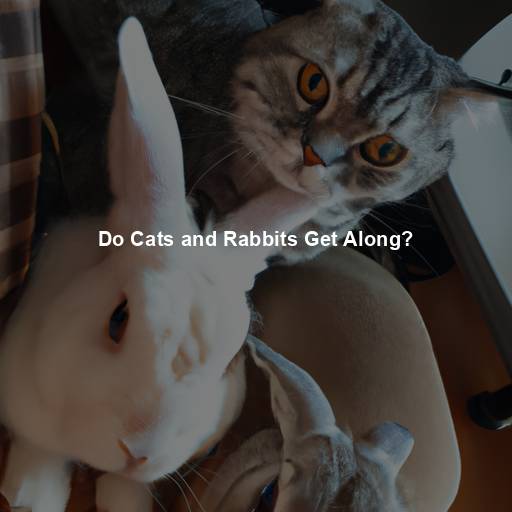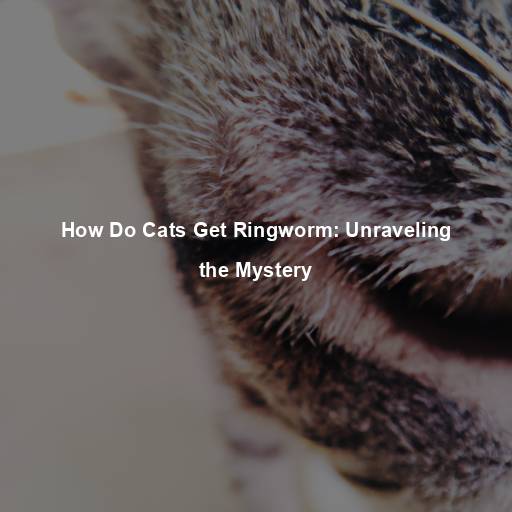Why Do Cats Open Their Mouth When They Smell?
Last Updated on July 14, 2023 by Evan
Contents
- 1 Understanding the Fascinating Behavior of Cats
- 1.1 The Science Behind Smelling
- 1.2 The Flehmen Response: A Unique Sensory Experience
- 1.3 Unleashing the Power of the Vomeronasal Organ
- 1.4 Heightened Sensory Exploration
- 1.5 The Role of Taste in the Smelling Process
- 1.6 Curiosity and Investigative Nature
- 1.7 Social Communication Through Scents
- 1.8 Environmental Enrichment and Stimuli
- 1.9 Health and Medical Considerations
- 1.10 Understanding and Appreciating Feline Behaviors
- 1.11 Sexual Maturity and Reproductive Behaviors
- 1.12 Territorial Marking and Scent Communication
- 1.13 Emotional States and Stress Levels
- 1.14 Environmental Stimulation and Opportunities for Smelling
- 2 FAQs for Why Do Cats Open Their Mouth When They Smell:
- 2.1 Why do cats open their mouth when they smell something?
- 2.2 Is the Flehmen response common in all cats?
- 2.3 Are there specific scents that trigger the Flehmen response in cats?
- 2.4 Can cats detect more information by opening their mouth while smelling?
- 2.5 Are there any health concerns associated with the Flehmen response in cats?
Understanding the Fascinating Behavior of Cats
Cats are undeniably intriguing creatures. From their graceful movements to their mysterious behaviors, there is always something captivating about these feline companions. One such behavior that often piques our curiosity is when cats open their mouths when they smell something intriguing. It is a behavior that leaves us wondering about its purpose and significance.
The Science Behind Smelling
Delving deep into the enigmatic world of our feline friends, we stumble upon the perplexing wonder of their olfactory prowess. An intricate and delicate mechanism, the sense of smell in cats goes far beyond mere survival, opening doors to a realm of exploration that eludes the grasp of us mere mortals. Their nostrils, shrouded in mystery, harbor a network of sensory receptors that unlock a universe of scents hidden from our feeble human senses. Prepare to be captivated by the burst of revelations that lie within the tantalizing realm of feline olfaction.
The Flehmen Response: A Unique Sensory Experience
One possible explanation for why cats open their mouths when they smell is a behavior known as the Flehmen response. The Flehmen response is observed in various animal species, including cats, and serves as a way for them to enhance their sense of smell. When a cat encounters an intriguing scent, it will often lift its upper lip, exposing its front teeth, and open its mouth slightly. This act allows the scent molecules to access a specialized sensory organ called the vomeronasal organ, or Jacobson’s organ, located in the roof of the cat’s mouth.
Unleashing the Power of the Vomeronasal Organ
The mysterious vomeronasal organ, shrouded in enigma and intrigue, plays an ethereal role in the feline world. Cats, in their seemingly bewitching wisdom, part their lips, welcoming the elusive scent molecules into this clandestine organ. The purpose? To unravel the cryptic messages encrypted within the scent markings left by their fellow feline beings.
Heightened Sensory Exploration
There’s a fascinating secret behind why cats have a peculiar habit of opening their adorable little mouths when they catch a whiff of something intriguing. Believe it or not, this peculiar behavior is nature’s way of enhancing their sensory escapades. By parting their lips, cats inadvertently boost the flow of air to their nasal passages, providing a turbocharged experience for their olfactory receptors. This sensory upgrade allows them to dive deep into the aromatic landscape, opening doors to a realm of hidden treasures – be it potential prey or lurking dangers that may be lurking in their surroundings.
The Role of Taste in the Smelling Process
When it comes to our feline friends, it turns out that there’s more than meets the eye (or should we say, nose? ). Ever wondered why your cat opens its mouth when it sniffs something intriguing? Well, here’s the scoop: it’s not just about smelling, but also about tasting.
Curiosity and Investigative Nature
The feline fascination with all things aromatic is a perplexing phenomenon indeed. As they venture forth into the great olfactory unknown, cats are known to unleash their hidden curiosity by parting their mouths in a burst of bewilderment. It’s as if they are on a quest to decipher the enigmatic origins of each captivating scent that wafts their way. By widening their mouth gateway, these four-legged detectives immerse themselves in a sensorial journey, determined to extract every fragment of information that lies concealed within the intricate web of aromas.
Social Communication Through Scents
Cats are highly social animals, and scent plays a crucial role in their communication with other felines. When cats open their mouths to smell, they are not only gathering information about their environment but also engaging in a form of social communication. By detecting and analyzing the scent markings left by other cats, they can gather essential social information, such as the presence of potential mates or the territorial boundaries of other felines. The Flehmen response, in this context, allows cats to establish connections and navigate the intricate social dynamics of their feline communities.
Environmental Enrichment and Stimuli
The mesmerizing realm in which a feline dwells holds profound sway over its peculiar idiosyncrasies, even extending to the unassuming act of parting its maw in the presence of captivating aromas. A tapestry of scintillating experiences, an enriched habitat teeming with captivating stimuli and tantalizing opportunities for sensory odysseys, acts as a catalyst for our feline companions to showcase a kaleidoscope of behaviors, including the enigmatic Flehmen response. By weaving a rich tapestry of toys, scratching posts, and intriguing interactive playtime, we unlock a sensory wonderland that invigorates their innate curiosity, beckoning them to boldly venture forth and unveil a more striking manifestation of this enthralling behavior.
Health and Medical Considerations
While the behavior of cats opening their mouths when they smell is generally harmless, it is essential to be mindful of any changes or abnormalities in their behavior. In some cases, excessive or persistent mouth-opening during smelling may be an indication of underlying health issues. Dental problems, oral discomfort, or respiratory conditions can affect a cat’s ability to smell properly, leading to exaggerated mouth-opening as they try to compensate for the impairment. If you notice any concerning changes in your cat’s behavior or health, it is always advisable to consult with a veterinarian for a proper evaluation and guidance.
Understanding and Appreciating Feline Behaviors
As guardians of our beloved feline friends, it’s crucial to embrace a sense of wonder and fascination when it comes to their behavior. Closely intertwined with their ancestral heritage, biological makeup, and personal encounters, cats display a rich tapestry of actions that beguile and perplex. By immersing ourselves in the study of these patterns, we can forge a deeper bond with our furry companions and create an environment that stimulates their senses, savoring the nuanced dance of their olfactory experiences. So, the next time your furry friend tantalizingly opens its mouth upon catching a whiff, allow yourself to be captivated by the enigmatic realm of feline senses, fully embracing the extraordinary manner in which they weave through the fragrant dimensions of their lives.
Sexual Maturity and Reproductive Behaviors
One significant factor that can influence the frequency and intensity of the Flehmen response in cats is their sexual maturity and reproductive behaviors. Intact male cats, or toms, are more likely to display this behavior when they encounter the scent markings of female cats in heat. The pheromones emitted by females during their reproductive cycle can trigger a strong response in males, leading to an exaggerated Flehmen reaction. This behavior serves as a means of assessing the female’s reproductive status and readiness to mate.
Territorial Marking and Scent Communication
Cats, those enigmatic creatures of the animal kingdom, have a secret language that goes beyond meows and purrs. Their mysterious way of scent marking is not just a random behavior, but a sophisticated means of communication. You see, when felines open their mouths to take in the surrounding smells, they are actually embarking on an intricate exchange of scents with their fellow cats. It’s like an invisible, perplexing conversation happening right under our noses.
Emotional States and Stress Levels
Emotions and stress levels can also influence a cat’s inclination to open its mouth when it smells. Cats experiencing heightened stress or anxiety may exhibit the Flehmen response more frequently as a means of coping with their emotional state. The act of engaging in this behavior allows cats to focus their attention on analyzing scents, diverting their attention away from potential stressors. Conversely, a cat in a relaxed and content state may display the behavior less frequently as they do not feel the need to be as vigilant or attentive to their surroundings.
Environmental Stimulation and Opportunities for Smelling
The world in which a feline frolics holds the key to unlocking its true nature, a dance of mystery and intrigue. The enigmatic Flehmen response, so delicately poised upon the whiskers of these creatures, finds its frequency intricately entwined with the tapestry of their surroundings. A resplendent realm, ripe with sensory delights, becomes a catalyst for this bewitching behavior. By providing an environment abundant with interactive wonders, from enticing toys that tickle their curious souls to towering scratching posts that beckon their agile claws, we awaken their senses to a symphony of olfactory exploration.
FAQs for Why Do Cats Open Their Mouth When They Smell:
Why do cats open their mouth when they smell something?
When cats open their mouth while smelling, it is known as the Flehmen response. This behavior allows them to gather more information about scents by drawing the air into their vomeronasal organ, also called the Jacobson’s organ. By opening their mouth and curling back their upper lip, cats can direct the scent molecules towards this organ, located in the roof of their mouth. It helps them obtain a more accurate analysis of the smell, especially when it comes to pheromones left by other cats or potential mates.
Is the Flehmen response common in all cats?
Have you ever noticed how cats, whether they’re domestic or wild, have this peculiar way of curling their upper lips and grimacing? It’s not because they’re silently judging you (at least, I hope not), but rather because of something called the Flehmen response. This instinctive behavior serves as a superpower of sorts for cats, allowing them to tap into their sense of smell in a whole new way. By curling their lips, they can take a deep whiff and gather valuable information about their surroundings or potential prey. It’s like they’re constantly running a top-secret operation, decoding the scents around them with their unique olfactory prowess. So, the next time you catch your furry friend pulling a funny face, remember that they’re just getting down to some serious sniffing business.
Are there specific scents that trigger the Flehmen response in cats?
It’s fascinating how our feline friends respond to different scents with the mysterious Flehmen behavior. Uncovering the secrets behind this intriguing reaction, we find that certain smells, like the lingering traces of other cats or the alluring fragrance of a potential mate, have a higher chance of eliciting this enigmatic response. But cats don’t stop there – they also engage in the Flehmen response when confronted with unique or overpowering odors, as if they’re trying to unravel the complexities of the aroma before them.
Can cats detect more information by opening their mouth while smelling?
Ever wondered why cats make that peculiar face, with their mouth slightly open and their upper lip curled? Well, it turns out there’s more to it than just a quirky expression. This feline behavior, known as the Flehmen response, is actually an ingenious way for cats to amplify their sense of smell.
You see, cats have a special organ called the vomeronasal organ located inside their mouth. This organ is responsible for detecting specific chemical compounds, like pheromones, that can’t be fully captured through regular nasal inhalation alone. So when a cat opens its mouth during the Flehmen response, it’s not just for show, but rather a clever strategy to gather additional information about potential mates, mark their territory, or detect the presence of other animals nearby.
In a world full of perplexing behaviors, the Flehmen response adds another layer of burstiness to our understanding of our feline friends. It’s a quirky phenomenon that highlights the incredible complexity of the animal kingdom and the fascinating ways in which different species navigate their environments. So next time your cat makes that peculiar face, remember that beneath the perplexity lies a curious and sophisticated sensory system at work.
Are there any health concerns associated with the Flehmen response in cats?
In general, the Flehmen response is a natural and harmless behavior for cats. However, in rare cases, if a cat encounters harmful chemicals or toxins in the environment, the exposure to these substances while performing the Flehmen response could potentially have negative health effects. It is essential to ensure that cats are kept in safe and toxin-free environments to prevent any accidental harm while exhibiting this behavior. If you notice any unusual symptoms or concerns about your cat’s health, it is always best to consult with a veterinarian for professional advice.

